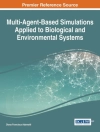For years, researchers have studied the risks of individual natural hazards in urban areas. However, the impact of multiple hazards has not yet received widespread attention in research and urban management practice, which is a significant gap in the current climate change context. This book aims to contribute to filling that gap by examining the process of identifying, assessing, and managing multi-hazard risks in urban areas. From identifying and assessing the vulnerability of the elements exposed to the impact of natural hazards, including earthquakes, floods, fires, and landslides, this book covers all the critical stages of multi-hazard risk assessment and management in a climate change context. The concepts and approaches discussed in the book are applied to the Lisbon Metropolitan Area, a dynamic and thriving metropolis, allowing readers to see those theories applied in a real setting. In addition to providing a solid theoretical foundation, this book offers practical guidelines for conducting risk assessment at the metropolitan scale, which makes it a valuable resource for researchers, practitioners, and decision-makers interested in understanding and managing multi-hazard risks in urban areas.
Inhoudsopgave
Chapter 1. An introduction to multi-hazard risk interactions towards resilient and sustainable cities.- Chapter 2. Methods, techniques and tools for evaluating and managing risks in urban areas.- Chapter 3. Social vulnerability in the Lisbon Metropolitan Area.- Chapter 4. Flood risk assessment in the Lisbon Metropolitan Area.- Chapter 5. Seismic vulnerability and risk assessment of the Lisbon Metropolitan Area.- Chapter 6. Multi-scale residential fire susceptibility in the Lisbon Metropolitan Area.- Chapter 7. On the physical vulnerability of buildings exposed to landslide hazards in the Lisbon Metropolitan Area.- Chapter 8. Multi-Hazard Susceptibility Assessment for Land Use Planning in the Lisbon Metropolitan Area.
Over de auteur
Dr. Tiago Miguel Ferreira
is a Lecturer in Civil Engineering at the School of Engineering of the University of the West of England (UWE Bristol), United
Kingdom, and an invited Assistant Professor at the University of Coimbra, Portugal. Dr. Ferreira’s research focuses on the
structural vulnerability of historical buildings and urban areas to natural and anthropogenic hazards, specifically earthquakes,
fires, floods, and landslides. More recently, he has expanded his focus to include the interaction between different hazards
and both physical and social vulnerability, both in the context of single, compound and cascading hazards. Recognised as
among the 2% top-cited scientists in the world by Elsevier BV and Stanford University (2021 and 2022) twice, Dr. Ferreira is
a highly accomplished academic in his fields of expertise. He has co-authored nearly 200 scientific and technical
publications, including dozens of research articles in someof the most reputed international journals. He has also edited
several books on the topics of vulnerability and risk assessment and participated in and coordinated many research projects
in these fields. Currently, Dr. Ferreira is a co-Editor-in-Chief of ‘Geo Hazards’, a multidisciplinary journal devoted to theoretical
and applied research across the whole spectrum of geomorphological hazards, and a Section Editor-in-Chief of ‘Fire’, a
wide-spectrum journal about the science, policy, and technology of fires and how they interact with communities and the
environment.












